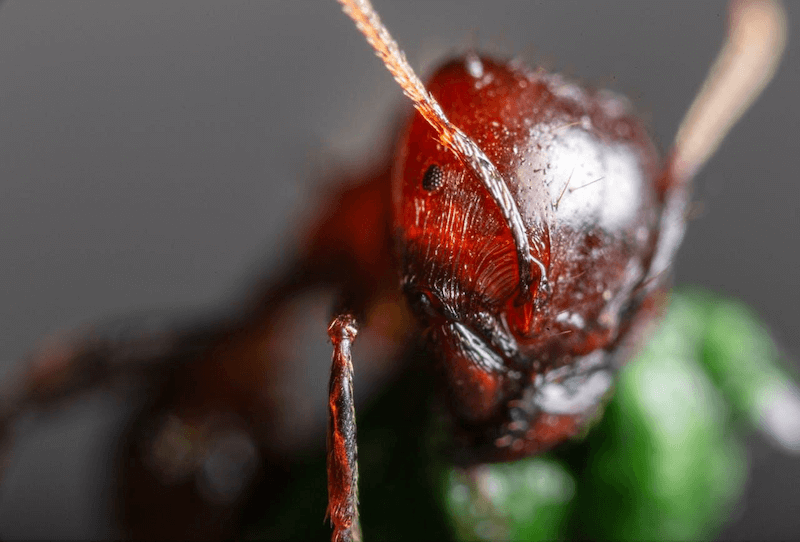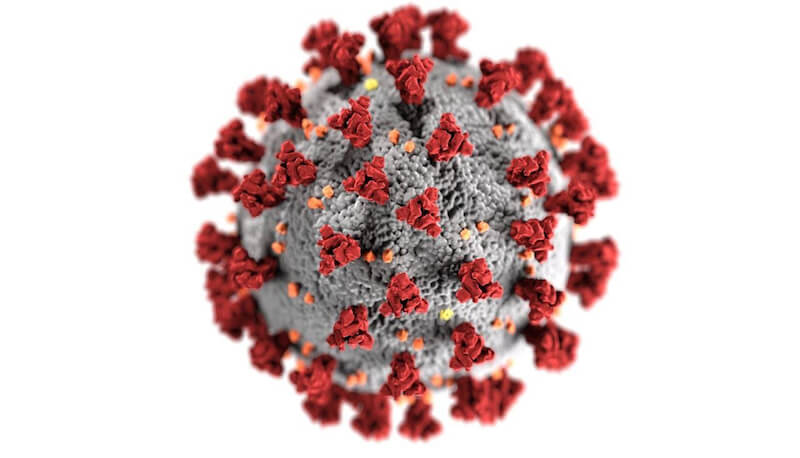TL;DR For The Hidden Dangers Of DIY Pest Control
DIY pest control can lead to misidentifying pests, misuse of harmful chemicals, and ineffective solutions that escalate the problem. Pests adapt quickly, making over-the-counter treatments less effective over time. Professionals offer tailored, eco-friendly, and long-term solutions, minimizing risks to your health, home, and the environment. Hiring experts saves time, money, and effort while ensuring your home remains pest-free.
Pest control is essential for maintaining a healthy and safe living environment. Whether termites gnaw at your home’s structure, rodents invade your kitchen, or ants trail through your living room, pests can become a significant issue if left unchecked. While it may be tempting to handle pest problems alone, DIY pest control often presents hidden dangers that can escalate quickly. Here, we’ll explore why professional help is usually the best choice when dealing with pests.
Misidentifying The Pest Problem
One of the most significant challenges with DIY pest control is misidentifying the problem. Not all pests are the same, and they require different treatment methods. You might think you’re dealing with ants when, in fact, you have termites, which pose a much greater threat to your home’s foundation.
Misidentification can lead to the wrong treatment, worsening the problem. Professionals are trained to properly identify pests and implement effective solutions based on the specific infestation.
Related Links
- Awesome Indoor And Outdoor DIY Projects
- DIY Tips For Keeping Ants Out
- Simple DIY Home Improvement Projects To Tackle This Summer
- Are Sentricon Termite Treatments Safe For Humans And Pets?
- The Role Of Professional Pest Control In Property Value Maintenance
Harmful Chemicals Can Pose Health Risks
Many DIY pest control solutions rely on chemicals that can be hazardous if misused. These products are often sold over-the-counter without clear guidance on how to apply them safely. Misuse can lead to the contamination of food, water, and surfaces in your home, which may pose significant health risks to your family and pets.
Additionally, poor indoor air quality can affect your health, especially when pest control chemicals linger in poorly maintained spaces. Regular air duct maintenance can help improve your health by reducing allergens and circulating clean air. On the other hand, professionals are trained in safely using pest control chemicals, ensuring they are applied to minimize harm to humans and animals.
Key Takeaways For DIY Pest Control – The Hidden Dangers
- Misidentification Risks: Misidentifying pests can lead to ineffective treatments that worsen infestations.
- Health Hazards: DIY chemicals can harm your family, pets, and indoor air quality when misused.
- Ineffective Short-Term Solutions: DIY methods often target surface issues, leaving root causes unresolved.
- Costly Mistakes: Untreated infestations or repeated purchases of ineffective products can increase costs.
- Professional Benefits: Experts ensure safe, effective, and long-term pest prevention with eco-friendly options.
Ineffective Solutions Can Escalate The Problem
While a quick trip to the store might yield a seemingly easy solution, many over-the-counter pest control products only address the surface of the problem. DIY solutions often kill pests on contact but fail to reach the root cause. For example, sprays may kill the ants you see but rarely reach the colony hidden behind walls or under the floorboards. Professional pest control services use more advanced techniques to eliminate the problem at its source, preventing re-infestation.
Pests Adapt Quickly
One of the lesser-known facts about pests is their ability to adapt to certain treatments. Many pests can resist over-the-counter pesticides, making them ineffective over time. Repeated DIY treatments may yield diminishing returns, leaving you frustrated and dealing with an infestation. Professionals stay up-to-date with the latest pest control methods and products, ensuring their approach is effective and efficient.

DIY Pest Control Can Be More Expensive In The Long Run
Many homeowners turn to DIY pest control to save money, but this approach can backfire financially. Without professional-grade solutions, repeated purchases of ineffective products can quickly add up. Additionally, when infestations are allowed to grow due to inadequate treatment, the damage to your home can become extensive.
An untreated pest problem can lead to costly repairs to walls, wiring, and even structural components. In many cases, hiring a professional from the start would have been the more economical choice.
The Risk Of Underestimating The Severity
One of the most common issues with DIY pest control is underestimating the severity of the infestation. Many pests, like termites or bedbugs, are incredibly difficult to detect in their early stages. When you realize you have a problem, it may have grown far worse than expected. A professional pest control expert can assess the full extent of an infestation using specialized tools and knowledge, ensuring that every pest is accounted for and treated appropriately.
Protecting The Environment
Another danger of DIY pest control is the potential environmental impact. Many over-the-counter pesticides contain harmful chemicals that, when used incorrectly, can seep into the soil or waterways, harming local wildlife and ecosystems. Professionals understand how to minimize the environmental impact of their treatments. Many pest control companies now offer eco-friendly options that are safe for the environment and effective at eliminating pests.
Danger To Pets And Children
Children and pets are particularly vulnerable to the hazards of DIY pest control. Curious children and pets may come into contact with chemical treatments applied in easily accessible areas. Without the proper precautions, they could ingest or touch harmful substances, leading to poisoning or severe allergic reactions. Professional pest control services ensure that treatments are safe for everyone in the household, using methods that reduce the likelihood of accidental exposure.
Long-Term Pest Prevention
Another downside of DIY pest control is that it typically focuses on short-term solutions. While you might eliminate a few pests today, there’s no guarantee they won’t return tomorrow. Professionals, on the other hand, not only eliminate pests but also help you take preventive measures. That might include sealing entry points, removing food sources, and addressing moisture issues—all of which are essential for long-term pest prevention.
Safety Precautions For Handling Specific Pests
Each type of pest presents unique challenges and risks, many of which DIY enthusiasts overlook. For example, dealing with rodents requires careful handling due to the diseases they carry, such as hantavirus and leptospirosis. Exposure to rodent droppings and urine can cause severe health issues without proper protective gear.
Similarly, stinging insects like wasps and bees can become aggressive if their nests are disturbed. A professional pest control expert is equipped to handle these situations safely, preventing injury or illness.

Why It’s Worth Investing In Professional Help
Pest control is not just about removing pests but protecting your home and your family’s health. The risks of DIY pest control—from using ineffective treatments to the potential for serious health hazards—often outweigh the initial cost savings. Professionals bring expertise, the right tools, and peace of mind that your home will be safe from pests for the long term.
When you work with a professional pest control service, you’re not just solving the problem temporarily. You’re investing in a long-term solution that addresses the root of the infestation and ensures that your home remains pest-free. The combination of advanced techniques, eco-friendly solutions, and safety measures makes professional pest control the smarter, safer choice for any homeowner.
Final Thoughts
While DIY projects can be fun and rewarding in many areas of home improvement, pest control is one area where professional help is often necessary. The hidden dangers of DIY pest control, such as misusing chemicals, underestimating infestations, and causing environmental harm, can all lead to bigger issues down the line. Trusting a professional pest control service ensures that experts handle the problem safely, effectively, and in a way that protects both your home and the people (and pets) living in it.
FAQ For The Hidden Dangers Of DIY Pest Control
Q. Why Is DIY Pest Control Risky?
A: DIY methods often lead to misidentifying pests, improper chemical use, and solutions that only address symptoms. This can result in worsening infestations, health risks, and environmental harm.
Q: Can Professional Pest Control Save Money?
A: Yes, professional services eliminate pests effectively at their source, reducing the need for repeated treatments and costly home repairs due to damage caused by unchecked infestations.
Q: How Do Professionals Ensure Safety During Pest Control?
A: Experts use targeted, eco-friendly treatments and take precautions to protect children, pets, and the environment. They also ensure chemicals are applied in safe, controlled ways.
Q: Are Over-The-Counter Pest Control Products Effective?
A: While they may offer temporary relief, many DIY products fail to address the root cause or adapt to resistant pests. Professional-grade solutions are more thorough and durable.
Q: What Long-Term Benefits Do Professionals Provide?
A: Professionals eliminate current infestations and implement preventive measures, such as sealing entry points and addressing moisture issues, to ensure pests don’t return.








